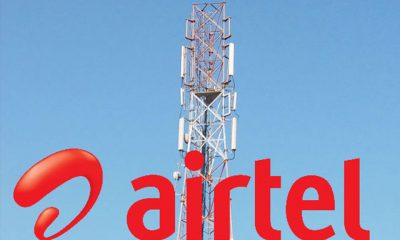The Nigerian Communication Commission (NCC) has announced its plan to develop policy for 5G development in Nigeria, saying it will not be deployed in Nigeria until the policy is concluded and approved.
A press statement signed by the Director, Public Affairs, NCC, Dr. Henry Nkemadu said “The development will bring improvements in manufacturing, transportation, public services, health and social works, agriculture, energy, logistics, media and entertainment, mining and quarrying, machinery and equipment, automotive, education, information and communication, urban infrastructure, consumer experience, sports, semiconductor technologies amongst others.”
According to the notice, NCC is mandated by Section 4(q) of the Nigerian Communications Act 2003 (the NCA), to prepare and implement programmes and plans that promote and ensure the development of the communications industry and the provision of communications services in Nigeria.
He said, such enhancements include applications like Internet of Things (IoT), Artificial Intelligence (AI), Robotics, Drones, Advanced Communication Systems, Cloud, 3D Printing, Mixed Reality, Simulation / Imaging, Gamification.
The notice shown that the deployment of 5G technologies will consequently promote the National digital economy for a digital Nigeria that will improve the way Nigerians live and work.
Nkemadu also said, “5G has been deployed commercially and in use in some countries. As with the previous technologies, the International Commission for Non-ionizing Radiation Protection (ICNIRP) has classified radiation from 5G as non-ionizing and therefore safe for human beings.
He noted that, “Following global trends in telecommunications development of 5G, the Commission in November 2019, embarked on a Proof of Concept (trial) with MTN in six locations using different equipment vendors for a period of three (3) months. Relevant stakeholders including members of the security agencies were involved in the trial.
He added that the trial was conducted to enable the Commission assess the performance of the technology in comparison with existing technologies, evaluate compliance to health and safety guidelines and also use the lessons learnt to guide Policy towards commercial deployment.
The trial which was conducted on the 3.5 GHz and 26 GHz bands was successfully completed with performance showing improvement of 5G over the previous technologies with the radiation levels well below the specified human safety guidelines. The equipment used in the trials have long been decommissioned in all the locations.
He Also noted that in view of the successful completion of the trial and a directive from the Minister of Communication and Digital Economy, the Commission commenced the development of a policy for the deployment of 5G in Nigeria. In line with its powers under section 57 of the NCA, and the need for wide public consultation, the process of developing this policy will involve a Public Inquiry which will involve all relevant Stakeholders in the review and consultation process.
He added that the consultative document is currently being developed and will be shared with these stakeholders and the general public, following which a Stakeholder Consultative Forum will be held. The views of all stakeholders will be considered in the final policy.

 Cover Story2 weeks ago
Cover Story2 weeks ago
 IT in Banking3 weeks ago
IT in Banking3 weeks ago
 Innovations3 weeks ago
Innovations3 weeks ago
 Training and e-Learning3 weeks ago
Training and e-Learning3 weeks ago